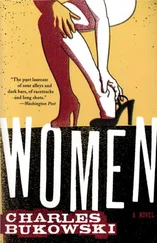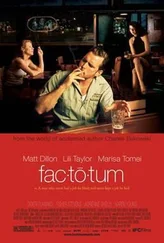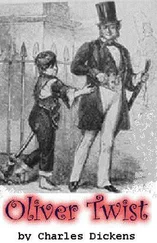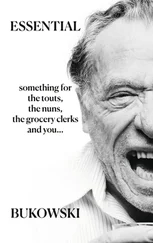Afterward, the nurse transferred that swaddled little crimson bean to him. Oliver collapsed in the cushions of the recliner chair next to Alice’s bed. The infant actually fit inside the length of his forearm, her little smushed face so deeply darkly crimson, her eyes closed like those of an iguana or a weird pod creature, maybe. Holding his daughter for the first time, bringing her onto his chest, feeling her little warmth, her package weight, not ten minutes old, that had been what really did it. Reading a sonogram didn’t count. Placing a hand or ear on Mommy’s giant belly was not the same thing: the baby motionless, lying on him, absorbing his smell and his weight and heat, Doe’s little neurons and cortical paths assimilating, learning and adjusting to and accepting, forming that bond that was deeper than blood. This had been the first true physical profundity between them, and Oliver had been impacted by the magnitude of what he would be to this little helpless bean, what was signified by her little fingers curled, moving just the weeist bit, toward him.
The next morning, the next lunch, the next evening
IN THE MAN’S business, among people who did what the man did, there was this story. The man had not read it, but that didn’t matter. The story was well known. The man knew it without having to read it. “A machine is invented,” he told Oliver. “An amazing invention. It can tell a person when he’s going to die — the precise time, the exact date. He can decide whether he should save his money or go bonkers on women and liquor. He can figure out how he wants to live with the time he has left. Who wouldn’t want such information?”
The man on the other end of the phone paused, but not for long enough to allow an answer.
“Naturally, insurance agencies buy the patent. The business model doesn’t work if customers know when they’re going to get sick.”
Phone jammed in the crook of his neck, head tilted to the side, Oliver set his coffee down a decent distance from his keyboard. He zipped down the menu list of file names. “Hold up. Okay, with you.”
“It’s why they don’t want to let anyone with a partial or small policy — something with a low ceiling and higher deductibles, like you and your wife had — why they don’t let you upgrade to a more expensive policy after getting diagnosed with something serious. Why should they let you cost them huge amounts of money when you haven’t been paying in your fair share? In the biz, we call it apples to oranges.
“That’s one thing you and your wife have to worry about.”
Typing, grumbling into the phone, Oliver saying something in the neighborhood of: “Wait, fuck me, go ahead, sorry.”
“Three hundred is a very low ceiling” came in response. “When the two of you hit your heads on that, one possibility is, switch to another apple. But even that’s a short-term fix. It’s not going to get your wife the transplant she needs. And from the way those Senate hearings are going, Hillarycare is running straight into a ditch. Ain’t no relief coming that way, not anytime soon. How we upgrade your wife to a better policy, this is the question we have to address.”
Ruggles had reached out and connected Oliver with an ambitious, prematurely balding counsel named Mr. Blauner, who specialized in health insurance law. Pro bono, Mr. Blauner was presently in the process of telling Oliver that absolutely positively not one thing from the financial end had happened. Account holds, flags, supersecret probations; nothing more than institutional language. The only difference between now and the day before that hospital visit, a definitive time frame had been placed on when Oliver needed to have that new policy. “That and the chick handling your account is not on your side.”
“I’m telling you,” said Oliver. “Lady might as well been the Christmas log channel. For all intents and purposes, I was talking with the Christmas log. I’m listening to her, thinking, This empty little child is going to bring on my family’s ruin .”
“Boychick, that little girl wasn’t hired to solve your problems,” Blauner answered. “They don’t train her to take care of your questions. Her deal is to get balances paid. No matter how supportive they are or how nice she sounds at first—”
“We didn’t even get that.”
“She’s been given a script. She wants to keep the conversation focused on that hospital, her employer, getting paid. That little young lady lives in the Bronx or something. What she cares about is keeping her kid in that Montessori school. She cares about not pissing off her supervisor. So one more deadbeat, no offense intended, is not her problem.”
Oliver mumbled something unintelligible, followed it up. “Yeah. I know.”
“My young charge, no matter where you go, everyone thinks they’re the one under assault. Both teams think that way. Get used to it.”
—
“Chemo Barbie,” Alice volunteered. “Barbie whose hair falls out. Her boobs are detachable. Her skin turns rashy.”
“And when she’s asleep, the doll versions of the nursing assistants can steal her clothes.”
Alice gasped. She let out a guilty laugh. Tilda kept wiping the infant, straight from the front down to the back. “Fine, I’m racist,” she admitted. “Against healthy and beautiful toys. Guilty as charged.”
“Healthy. Beautiful. That’s certainly not me.”
Tilda paused from her application of Triple Paste. She looked Alice right in the eyes: they’d been friends for almost a decade; since orientation week of college, skipping out to get pastries at Veniero’s. “Stop it. Do you even know how glamorous you are?”
“Yes, a regular Holly Golightly. Only with complex blood cell cancer.”
Something was forced, self-serving, even small in her words. But Tilda didn’t have a chance to respond to them: Alice’s laughter led to coughing, which escalated into hacking, which, once started, she could not stop. Long woolen strings dangled at the ears of her ski cap; Alice’s heaving was heavy enough to leave them swinging. The sounds coming from her throat were brutal. Then mucus, strings followed by a thick green globule. Finally a break. Taking the baby wipe offered by her friend, Alice dabbed. She caught her breath enough to say it was fine. She was fine.
On the side of the bed, Tilda remained perched and observant. Only after a period of silence, and with much hesitation, did she return to her assigned duty, and connect the Velcro straps, which sealed and signaled a successful diaper change. Blowing a raspberry into the dough of the baby’s tummy, Tilda broke the room’s thickness, was rewarded — Doe turning joyous as pie, squealing; her mom beaming as well.
Tilda had brought over a plastic high chair, bless her, as well as a bunch of onesies, which the two women had folded, organized, and cooed over. Tilda had mixed the baby’s formula with three parts water from the Poland Spring jug (the Brita didn’t make a dent against the old building’s pipe sludge). Using the pages of Alice’s leather organizer as a guide, she’d even started setting up a tree of friends who’d bring homemade food for Alice, help with babysitting, and call one another to coordinate and schedule. Tilda now folded the stained wipes inside the used diaper; she dropped the stinking package into the canvas sack that hung from the side of the bureau, put away the changing pad, and lifted the cooing baby. All the while, she updated Alice about interviews conducted over the course of three hours of her previous evening, the advantages and disadvantages of the various earnest college kids and actresses in need of cash, the Dominican and Haitian grandmothers who had generations of experience raising entitled Upper East Siders, the Thai teenager who’d spoken English with surprising precision and most likely had answered Tilda’s classified while hidden in a supply closet in the back of some Chinese take-out joint.
Читать дальше











